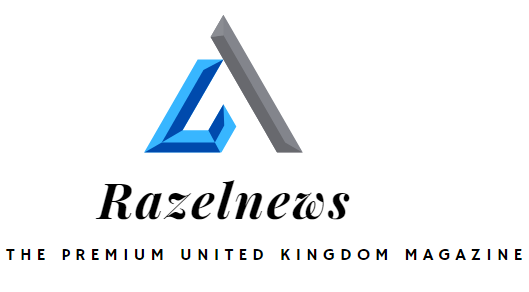Exploring the Imo Meaning on Facebook: Unraveling the Social Media Lingo

In the ever-evolving landscape of social media, Facebook remains a juggernaut, connecting billions of people worldwide. As users engage in conversations and share content, a plethora of acronyms and abbreviations often pop up, creating a unique online language. One such term that has gained popularity is “IMO.” In this article, we will delve into the imo meaning on Facebook, unraveling its usage, origins, and the dynamics it adds to online communication.
Understanding “IMO”:
“IMO” stands for “In My Opinion.” This acronym has become a staple in online conversations across various platforms, including Facebook. Users employ it to express their subjective viewpoints or personal beliefs, acknowledging that what they are about to share is based on their individual perspectives.
Usage in Facebook Conversations:
On Facebook, IMO often finds its place in comments, status updates, and replies to posts. It serves as a courteous way for users to share their thoughts while recognizing the subjective nature of opinions. For example, a user might comment on a friend’s post about a movie, saying “IMO, the plot was captivating, but the ending left me wanting more.”
Expressing Subjectivity and Respect:
The use of “IMO” on Facebook reflects a digital etiquette that promotes respectful and open communication. By prefacing a statement with “In My Opinion,” users signal that they are aware of differing perspectives and encourage healthy discussions. This contributes to a more inclusive and understanding online environment, fostering meaningful connections among users with diverse opinions.
Origins of IMO:
The origins of “IMO” can be traced back to the early days of online communication, particularly in forums and chat rooms. As users sought to convey their opinions without imposing them on others, the acronym “IMO” emerged as a convenient shorthand. Over time, it has seamlessly integrated into the social media lexicon, becoming a widely accepted and recognized expression of subjectivity.
Evolution of Online Language:
The evolution of online language, driven by social media platforms like Facebook, reflects the fast-paced nature of digital communication. Acronyms and abbreviations like “IMO” streamline conversations, allowing users to convey complex ideas in a concise and efficient manner. This linguistic evolution not only serves practical purposes but also plays a crucial role in shaping the culture of online interactions.
Variations and Alternatives:
While “IMO” is the most common acronym used to express personal opinions on Facebook, variations and alternatives have also emerged. Some users prefer “IMHO,” meaning “In My Humble Opinion,” to convey a sense of modesty. Others might simply use “I think” or “I believe” to express their viewpoints without resorting to acronyms. These variations add nuance to online expression, showcasing the diverse ways users navigate digital conversations.
Challenges of Digital Expression:
While acronyms like “IMO” contribute to streamlined communication, they also pose challenges in the realm of digital expression. Misinterpretation can occur when users rely heavily on abbreviations, as the nuances of tone and context may be lost. Striking a balance between brevity and clarity remains a perpetual challenge in the ever-evolving landscape of online communication.
Conclusion:
In conclusion, the imo meaning on Facebook, represented by the acronym “In My Opinion,” plays a significant role in shaping the dynamics of online communication. As users navigate the vast landscape of social media, expressions like “IMO” contribute to a more respectful and inclusive environment. Understanding the origins, usage, and variations of this acronym sheds light on the intricate tapestry of online language, reflecting the constant evolution of digital communication in the 21st century.
What does “IMO” stand for on Facebook?
- Answer: “IMO” stands for “In My Opinion.” It is an acronym commonly used on Facebook to preface statements expressing personal viewpoints or beliefs.
How is “IMO” used in Facebook conversations?
- Answer: Users typically use “IMO” in comments, status updates, or replies to posts to convey that the following statement is their subjective opinion. It’s a way of expressing thoughts while acknowledging individual perspectives.
Why do people use “IMO” on Facebook?
- Answer: People use “IMO” to express their opinions respectfully. It serves as a digital etiquette, signaling an awareness of differing viewpoints and fostering healthy discussions in online conversations.
Is “IMO” unique to Facebook, or is it used on other social media platforms?
- Answer: While “IMO” originated in early online communication, it is not unique to Facebook. It is widely used across various social media platforms, forums, and chat rooms.
Are there alternative acronyms to “IMO” on Facebook?
- Answer: Yes, there are alternatives like “IMHO” (In My Humble Opinion). Some users might also use phrases like “I think” or “I believe” to convey their opinions without using acronyms.
What is the etiquette for using “IMO” in Facebook discussions?
- Answer: The etiquette involves using “IMO” to express opinions while maintaining a respectful tone. It signals an understanding that others may have different perspectives, encouraging open and inclusive communication.
Does using “IMO” affect the tone of a Facebook conversation?
- Answer: Yes, using “IMO” can affect the tone positively. It helps in creating a more considerate and understanding online environment by indicating that the shared opinion is subjective and not necessarily a universal truth.
How has the use of acronyms like “IMO” evolved over time on Facebook?
- Answer: The use of acronyms has evolved as part of the broader evolution of online language. As digital communication has become more fast-paced, acronyms like “IMO” provide a concise way for users to express opinions and ideas.
Are there potential challenges associated with the use of “IMO” on Facebook?
- Answer: One potential challenge is the risk of misinterpretation. Depending solely on acronyms may lead to the loss of nuances in tone and context, emphasizing the ongoing need to balance brevity with clarity.
How can users navigate digital expression effectively on Facebook?
- Answer: Users can navigate digital expression effectively by using acronyms like “IMO” judiciously, being mindful of context, and considering the potential for misinterpretation. Balancing brevity with clarity is essential for meaningful online communication.






